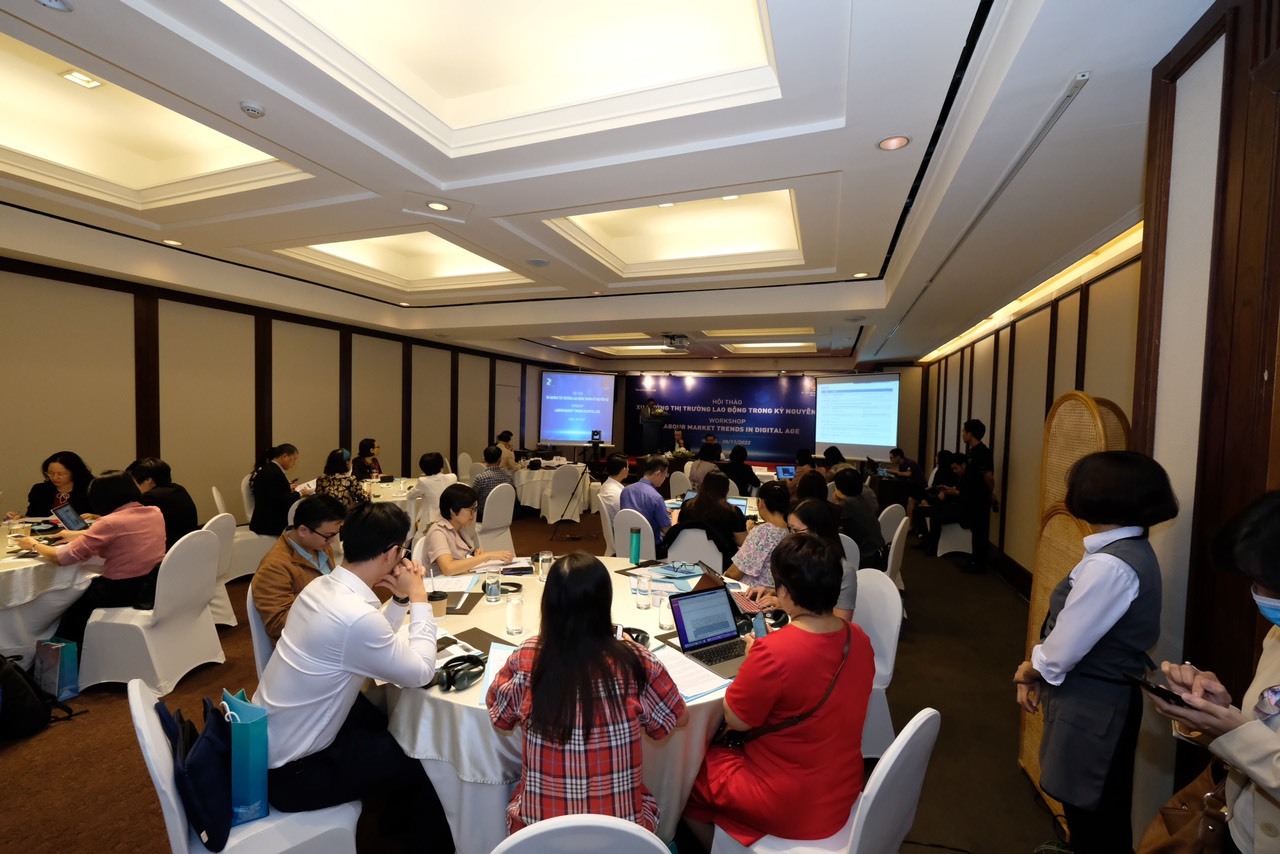HCMC – The World Bank has said that if Vietnam’s pool of skilled workers falls short of what is required by a rapid digital transformation process, the economy could lose as many as two million jobs by 2045.
Under the dual impacts of the digital age and the pandemic, the future of work for Vietnam will witness significant evolution in terms of workers and the workplace.
Nguyen Thi Nga, a representative of the World Bank on employment, told a workshop that digital skills cover the range of skills, abilities, knowledge and work habits that allow people to access and use digital technologies. This is an important requirement for workers in the context of constantly changing work patterns and nature.
Nguyen Xuan Son, country operations manager for Staffing & Outsourcing services at ManpowerGroup Vietnam, said at the workshop “Labor Market Trends in The Digital Age” in Hanoi City on November 8: “Major trends like the growing importance of contingent workers, companies’ efforts to rebuild employee capabilities via skill development programs, and the rising of a hybrid work model in the new normal will take place in the coming time.”
Given the acceleration of digital transformation, many jobs will disappear, while new roles will be created. Meanwhile, with only 11.6% of highly skilled workers, the Vietnamese workforce is seen as less competitive than some regional markets, such as Thailand, the Philippines and Malaysia, in terms of skills.
Nguyen Ba Hoan, Deputy Minister of MOLISA, said, “Employment security and skills development for workers amid the digital transformation are among the important goals for every country.”
“The increasing application of digital technology, smart devices and robotics in production and business activities is posing challenges to a low-skilled labor market such as Vietnam. An abundant low-cost workforce will no longer be a competitive advantage in attracting foreign investment. Given this context, comprehensive solutions will be required to improve the quality of recruitment and training of human resources for a future-proof workforce.”
Andree Mangels, general manager of ManpowerGroup Vietnam, said technology is constantly evolving and that employers need an agile approach to employee skilling and create long-term learning strategies that equip their staff to do jobs that exist now and those that will be created in the future.
According to statistics in Vietnam, 68% of current jobs require digital literacy with basic digital skills, while one-fifth need particularly intensive digital skills. Besides, the use of digital skills at different levels in Vietnam is also different from other countries in the region and the world.
ManpowerGroup Vietnam and the Ministry of Labor, Invalids and Social Affairs (MOLISA) held the workshop to discuss major labor market trends under the impact of the digital age and the Covid-19 pandemic.









